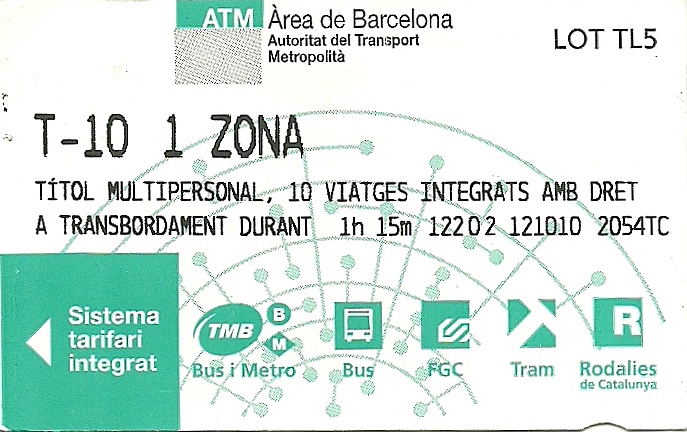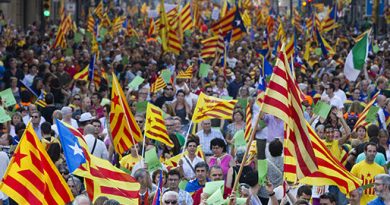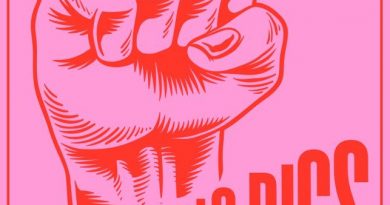Barcelona: to follow the T-10
The measures announced for transportation harm an important sector of the population. Last week the mayor Ada Colau and Minister of Territori Damià Calvet jointly announced the commissioning of new Metro tickets. Calvet has assessed that: The regular user will be benefited, the measure will drive more people to opt for public transport and will reduce the number of cars. According has said, You will have a big impact "It will benefit the user, to the country and the planet ".
On the other hand Colau has submitted the measure stating that the T-Casual "It's a pricing revolution" involved "Flat fee", "For little more than worth a cafe to have unlimited day travel. Revolution is presented today. It is a change of habit ". “On average, the savings will be a 25% for regular user”.
The agreement for the modification are involved the authorities of the City of Barcelona (We shared-PSC) and the Government of Catalonia (JxCat-ERC), who presented the decision as a breakthrough low cost. The point is that there seems to be the same valuation by many users of everyday transportation AMB.
…replacing the T-10 is a pocket fit the humblest passengers.
The T-10 will be replaced by the T-casual and T-usual. The implementation of T-casual price increase compared to the previous ticket and be sole, whereby people not to travel every day to have odd jobs or discontinuous and / or have large family will be harmed. The entry into force of the T-usual implies a decrease in price compared with the T-Mes, whereby people traveling every day will be favored. But it is not a simple equation of addition and subtraction, beyond how to present the replacement of the T-10 it is a pocket fit the humblest passengers.
The T-10, used by more than one 57% of the population it becomes more expensive in more than one 11%. further, and it may not be used by the entire family as is the case today, because it will be replaced by another more expensive and only single use. While the increase be approved at the board of the ATM, the compound being 51% by the Government, he 25% by the City of Barcelona and 24% by the Metropolitan Area of Barcelona, It is clear that the governance arrangements that support harm to an important sector of the population, he did not have the opportunity to comment on about it since he was not consulted.
Even before the economic crisis began in 2008, the price of the ticket T-10 has increased by more than 57%, while wages have remained with the same value, and in many cases they suffered cuts and / or were frozen during the same period. They want to climb up the passage without improving service, in Metro infrastructure it is in full decline: no leaks and puddles when it rains, The heat is unbearable at stations and workers do not recognize the damage suffered by the existence of asbestos.
The discomfort many users have already begun to manifest…
We are in favor of taking measures to protect the environment and improve mobility, but not at the cost of adjusting to the poorest. Because, We reject the disappearance of the T-10, if they favor passengers and keep it at a lower price deploy the T-usual. The discomfort many users have already begun to appear on social networks and there is a campaign platform Change.org sucking picking 5.000 signatures calling the return of T-10 and removing its substitute, la T-casual. The text of the complaint says "This new card will mean an increase in the cost of public transport for occasional users. With the new tariffs, this card will have cost 10,20 euros 11,35 euros”.
To protect the environment must be taken background, because it destroys the environment is capitalism, not the user of the T-10. Must be progressive to tax big business and transportation, design a mobility plan for the city based on ecological sustainability criteria and supports commuting to urban and interurban areas, expanding routes and frequencies, with a cheap Metro, buses and private vehicles and electrical officers. remunicipalisation of the shuttle under control of its own workers is necessary, neighbors and users. The formulas of mixed public and private provision only serve to encourage corporate profits without improving transport conditions of the majority of the workers and the people.




